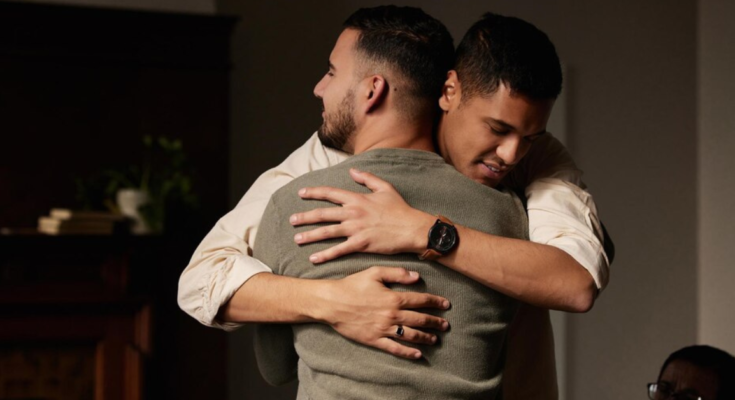Let’s talk about something that makes life truly amazing – friendship! It’s like this precious gift that adds so much richness, joy, and support to our lives. I mean, who doesn’t love having someone to share their ups and downs with, right? But here’s the thing, being a good friend isn’t just a natural talent, it’s something we need to work on and nurture.
In this article, we’re going to dive deep into what it takes to be a rockstar friend. We’ll uncover those essential qualities that make all the difference. Think of it as the secret recipe for building strong and meaningful friendships. From empathy and loyalty to trust and communication, these qualities are like the building blocks that lay the foundation for awesome friendships. So, let’s get started and discover what it truly means to be an amazing friend, shall we?
Empathy: Understanding and Connecting with Others
One of the fundamental qualities of being a good friend is empathy. Empathy allows us to understand and share the feelings of others, putting ourselves in their shoes. It is the ability to listen attentively, validate their emotions, and offer support without judgment. When we empathize with our friends, we create a safe space for them to open up and trust us with their vulnerabilities.
Trust: The Foundation of Strong Friendships
Trust is the cornerstone of any healthy relationship, including friendship. A good friend is someone who can be relied upon and trusted with personal matters. Trust is built over time through consistent actions and reliability. Honesty, integrity, and maintaining confidences are crucial in fostering trust. When we trust our friends, we can share our deepest secrets, knowing that they will keep them safe.
Loyalty: Standing By Each Other Through Thick and Thin
Loyalty is an invaluable quality in a good friend. True friends stand by each other through thick and thin, offering unwavering support and encouragement. Loyalty means being there in times of both celebration and adversity. It involves showing up when needed, being a reliable source of strength, and being fiercely protective of each other’s well-being. A loyal friend is a constant presence in our lives, no matter the circumstances.
Communication: Open and Honest Dialogue
Clear and open communication is the lifeblood of any friendship. A good friend is someone with whom we can have honest conversations, express our thoughts and feelings, and resolve conflicts peacefully. Effective communication involves active listening, expressing oneself respectfully, and being open to feedback. Good friends understand the importance of maintaining open lines of communication to ensure a strong and healthy bond.
Acceptance: Embracing Differences and Flaws
No two people are the same, and a good friend embraces this diversity. Acceptance is the ability to appreciate and respect our friends for who they are, flaws and all. It means celebrating their successes, supporting their dreams, and standing by them even when they make mistakes. True friends do not try to change each other but love each other unconditionally, accepting both the strengths and weaknesses that make them unique.
Reliability: Being Dependable and Consistent
Reliability is a quality that helps to build trust and strengthen friendships. A good friend is someone we can count on, knowing that they will be there when they say they will. Being reliable means following through on commitments, keeping promises, and being present when needed. Reliability creates a sense of security and stability in the friendship, allowing both parties to rely on each other without hesitation.
Support: Nurturing Growth and Well-Being
A good friend is a source of support, nurturing the growth and well-being of their companions. Supporting a friend means celebrating their achievements, offering encouragement during challenging times, and being a shoulder to lean on. It involves actively listening, offering advice when requested, and providing a safe space for them to express their fears and aspirations. Supporting our friends helps them become the best versions of themselves.
Fun and Laughter: Enjoying Each Other’s Company
Friendships should also be a source of fun, laughter, and joy. Good friends find pleasure in each other’s company, creating memorable moments and shared experiences. They know how to lighten the mood, have a good time, and create an atmosphere of happiness. Fun and laughter are essential for nurturing the bond between friends and creating lasting memories that will be cherished for years to come.
Understanding Boundaries: Respecting Personal Space and Autonomy
In any friendship, it is crucial to understand and respect boundaries. Each individual has their own needs, preferences, and personal space that should be acknowledged and honored. A good friend understands and respects these boundaries, recognizing that everyone has their limits and comfort zones.
Respecting boundaries means refraining from prying into personal matters unless invited to do so. It means being mindful of personal space and not intruding upon it without permission. Boundaries also extend to respecting each other’s time and commitments.
Being a good friend involves understanding that our friends have their own lives, responsibilities, and priorities outside of the friendship. We should respect their autonomy and not impose our expectations or demands upon them.
By respecting boundaries, we create an environment of trust and mutual respect. We show our friends that we value their individuality and their right to set boundaries for themselves. This understanding fosters a healthier and more balanced friendship, where both parties feel comfortable and respected.
Forgiveness and Conflict Resolution: Nurturing Resilience and Understanding
No friendship is immune to conflicts or misunderstandings. It is natural for disagreements to arise from time to time. However, what sets a good friend apart is their ability to navigate conflicts and work towards resolution. Forgiveness and conflict resolution are essential qualities to cultivate in order to maintain a strong and enduring friendship.
When conflicts arise, a good friend approaches the situation with empathy and a willingness to understand the other person’s perspective. They are open to constructive dialogue and seek a resolution that is fair and respectful to both parties. This requires active listening, empathy, and the ability to put oneself in the other person’s shoes.
Forgiveness is a crucial aspect of conflict resolution. Holding grudges or harboring resentment can erode the trust and bond between friends. A good friend understands the importance of forgiveness and is willing to let go of past hurts in order to move forward. Forgiveness does not mean forgetting or condoning harmful behavior, but rather acknowledging mistakes, learning from them, and giving each other the opportunity to grow.
Being Present: Quality Time and Genuine Interest
In our fast-paced and busy lives, it can be easy to get caught up in our own commitments and distractions. However, being a good friend means being present and making time for meaningful interactions. It means setting aside quality time to spend with our friends, free from distractions and with a genuine interest in their lives.
Being present involves active engagement in conversations, actively listening, and showing genuine interest in our friends’ thoughts, feelings, and experiences. It means putting away our devices and giving our undivided attention to the person in front of us. By doing so, we demonstrate that they are valued and that their presence in our lives matters.
Being present also extends beyond physical interactions. In today’s digital age, we have various means of staying connected, such as through phone calls, video chats, or messaging apps. A good friend utilizes these tools to maintain communication and keep the friendship alive, even when distance or circumstances prevent regular face-to-face interactions.
Celebrating Individuality: Encouraging Personal Growth and Pursuit of Passions
A good friend recognizes and celebrates the individuality of their companions. Each person has their own unique strengths, talents, and passions. A good friend encourages and supports their friends in their personal growth and the pursuit of their dreams and interests.
Supporting personal growth means being a cheerleader, offering encouragement and motivation when our friends embark on new endeavors or face challenges. It involves celebrating their achievements and milestones, both big and small. A good friend understands the importance of lifting each other up and helping each other reach our full potential.
Summary
Being a good friend is an art that requires cultivating essential qualities such as empathy, trust, loyalty, communication, acceptance, reliability, support, and the ability to have fun and laugh together. These qualities are the building blocks of strong and meaningful friendships that stand the test of time. As we continue to cultivate these qualities within ourselves, we become better friends, creating a positive impact on the lives of those we hold dear. So let us embrace the art of being a good friend and cherish the beautiful relationships we have in our lives.



